Omnichannel marketing is the seamless cooperation and integration of multiple channels businesses use to interact with customers — from messaging, customer touchpoints, branding, and marketing — with the aim of creating a streamlined customer experience.
Today’s world is evolving at a rapid pace, and with it comes immense advances and challenges. Omnichannel marketing is no exception — many confuse multichannel with omnichannel marketing, and we understand why.
And with so much competition today, understanding the fundamentals of omnichannel marketing and having a strong omnichannel marketing strategy can be the key to success.
In this detailed omnichannel marketing guide,
you'll learn:
✔ What omnichannel marketing is
✔ The importance of omnichannel marketing
✔ Omnichannel vs multichannel
✔ Benefits of omnichannel marketing
✔ Examples, tips, and tricks
If you’re ready to learn and devise your own omnichannel strategy, this is the guide for you!
Let’s get ‘omnichannel-ing’ :-).
Table of Contents
What is Omnichannel Marketing?
Omnichannel marketing is the streamlined integration of messaging, branding, customer touchpoints, and other channels with the goal to provide a meaningful customer experience.
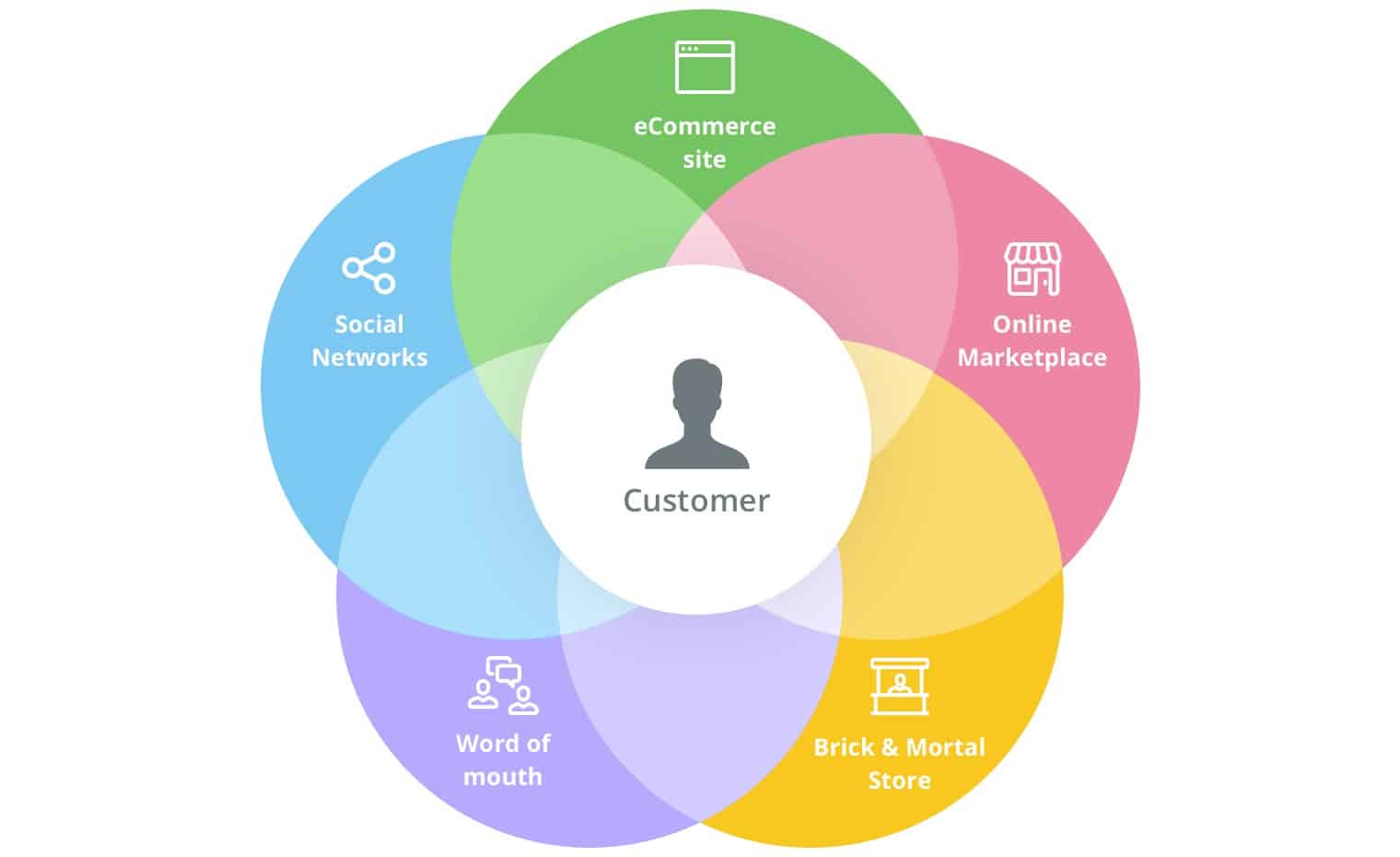
By taking a holistic approach to marketing and interacting with customers through multiple channels, such as social media, email, mobile apps, and more, businesses can improve their brand visibility, engage with customers more effectively, and boost sales.
With omnichannel marketing, your business will have:
- A recognizable, streamlined, and consistent brand voice
- The ‘right’ message to the ‘right’ person at the ‘right’ time
- Marketing content insights derived from past customer data
Read also: The Top 12 Omnichannel Marketing Automation Platforms For 2024
Why is Omnichannel Marketing Important?
There are several key benefits to omnichannel marketing for businesses.
- Firstly, by understanding the needs and behaviors of customers across all channels and touchpoints, you can create targeted messaging that resonates with them. This allows you to build stronger relationships with your customers, increasing their loyalty and driving sales growth.
- Also, using a variety of different channels to reach and interact with customers can help you find new audiences that you might not have been able to connect with otherwise.
If you want to watch a quick video to understand the definition of omnichannel marketing, this is a good one:
Read also: Multichannel Retailing: Everything You Need to Know
Is Omnichannel Marketing Not Multichannel Marketing?
The answer to this question is yes; omnichannel marketing is not multichannel marketing.
- Omnichannel marketing is a more comprehensive and holistic approach to marketing that takes into account all potential channels through which a customer might interact with a brand.
- Multichannel marketing, on the other hand, focuses on using specific channels (e.g. social media, email, etc.) to reach specific marketing goals.
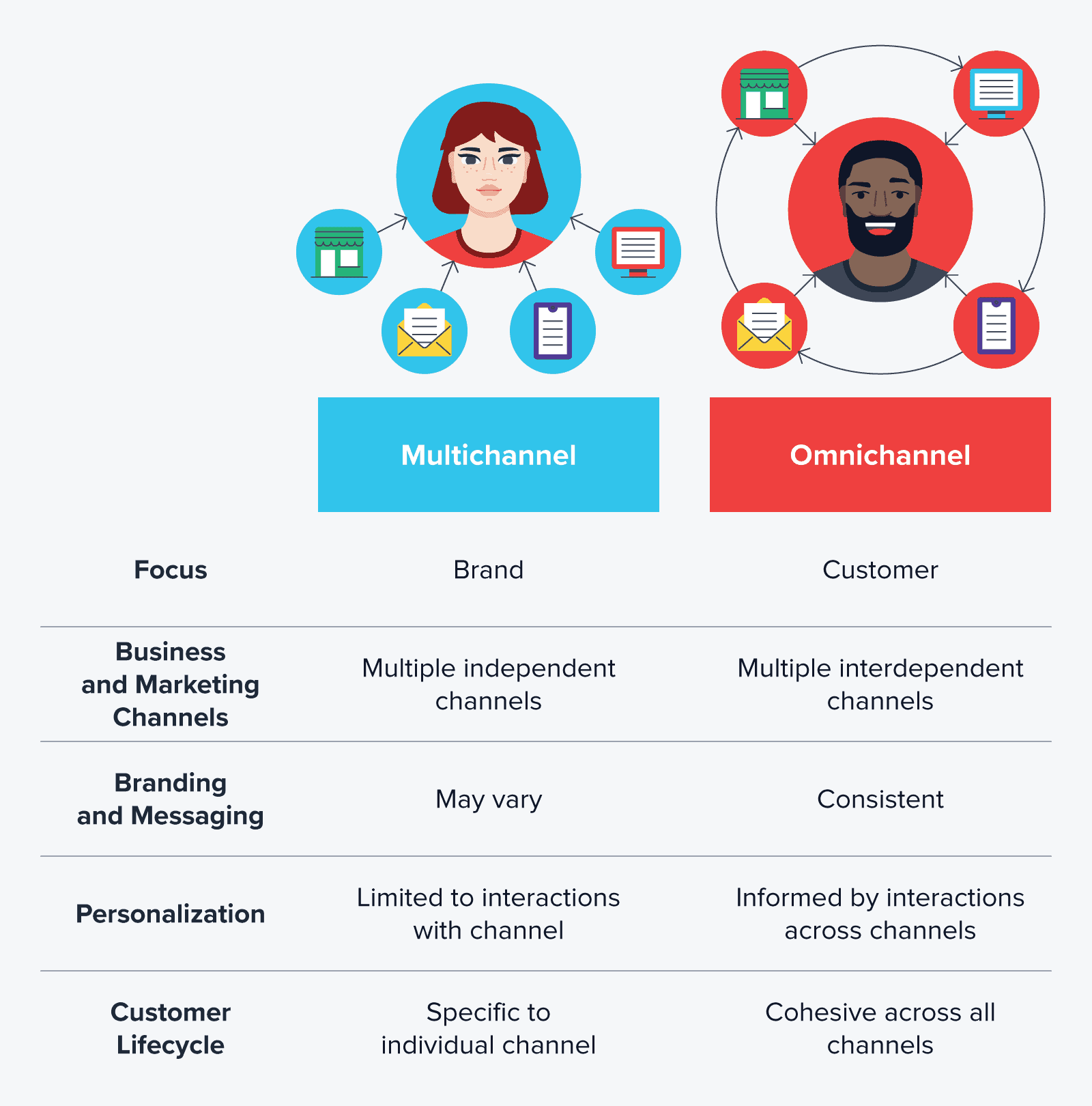
Omnichannel marketing seeks to provide a seamless, integrated experience for customers, regardless of the channel they are using.
The goal is to create a cohesive brand identity and customer experience that transcends individual channels and creates a true omnichannel presence.
To keep it simple:
- If it is marketing through multiple channels with multiple goals, call it multichannel marketing.
- If it is marketing through every possible channel with one single goal, call it omnichannel marketing.
Read more: 12 Tips to Build a Winning Customer Experience Strategy
Enhance Your Email Marketing
Want to make your emails more impactful? Check out our beautiful, easy-to-customize email templates. Designed to boost engagement, these templates from EngageBay will help your emails stand out. Just customize the images, headings, and CTAs for your brand, and hit send in a few minutes!
Read also: What is Omnichannel Retail? Basics, Benefits, Trends & Examples
How To Get started With Omnichannel Marketing
If you’re looking to implement omnichannel marketing for your business, there are a few best practices you should keep in mind.
Firstly, it’s important to have a clear understanding of the needs and behaviors of your target audience on every marketing channel and touchpoint.
Second, it’s crucial to be consistent in your messaging and customer service interactions, ensuring that all customer experiences are aligned with your brand values and goals, so it becomes necessary to create a style guide.
Finally, you should constantly evaluate and refine your marketing efforts to ensure that they remain effective over time.
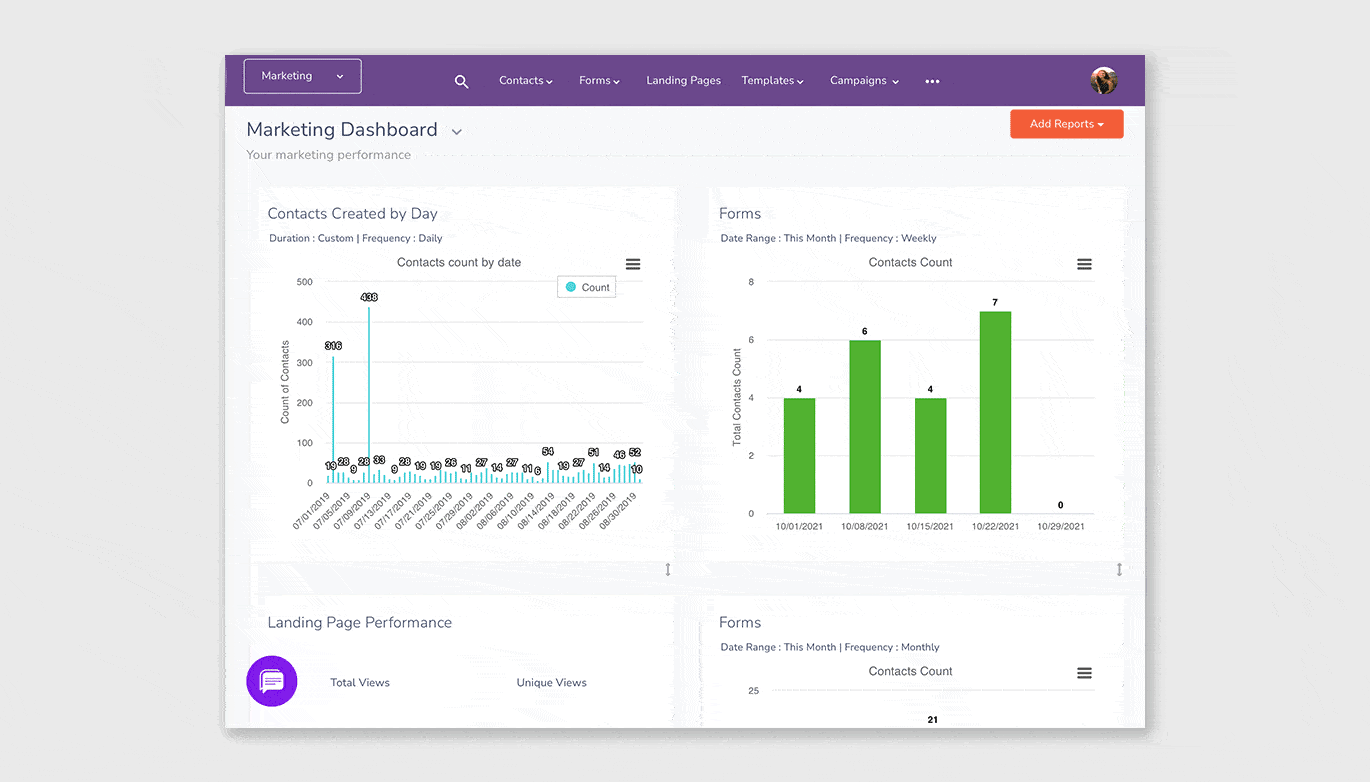
To get started with omnichannel marketing, you will first need to understand the different channels that are available across the customer journey and how they can be used effectively.
Some of the most popular marketing channels include email, social media, paid advertising, direct mail, and mobile messaging.
Each marketing channel has its own strengths and weaknesses, so it is important to carefully consider which ones make the most sense for your business or brand.
Once you have identified your preferred marketing channels, you can start creating content that caters to customers on each individual channel.
This might include creating custom graphics, videos, or ads for social media, or optimizing your website and email newsletters to attract more leads.
Overall, omnichannel marketing is a powerful tool that can help you engage with customers on multiple channels and deliver a consistent brand experience at every touchpoint.
Read also: SMS Character Limit – Will Your Message Fit?
What Are the Benefits of Omnichannel Marketing?
Benefits of omnichannel marketing for your business:
- You get increased customer engagement
- You can improve customer experience
- You’ll be able to increase sales and ROI
- You’ll have more customer insights
- Unifies your efforts and helps you achieve more goals
1. Increased customer engagement
Omnichannel marketing helps you increase customer engagement by opening up multiple ways for prospects and customers to interact with your brand. This could include your website, social media, email, phone, and in-person interactions.
By giving customers multiple channels for engagement, you’re providing them with more opportunities to connect with your brand. This omnichannel approach to digital marketing can help you increase customer loyalty and brand awareness.
2. Improved customer experience
Omnichannel marketing also leads to improved customer experiences. When customers have a seamless experience across all channels, they are more likely to be satisfied with your brand.
An omnichannel marketing strategy can help you create a cohesive customer experience that meets their needs and exceeds their expectations.
Read also: Here’s What Micromarketing Means, and How It Can Help Your Business
3. Increased sales and ROI
The omnichannel strategy is an engaging process that capitalizes on the customer journey through various channels to increase sales, retention rates, and ROI.
One great example of how to improve ROI and sales with omnichannel marketing is by incorporating customer feedback into your marketing efforts.
By actively listening to the wants, needs, and preferences of your customers, you can create targeted marketing campaigns that are more likely to resonate with them and drive conversions.

4. More customer insights
Your customers are a bank of insights that should inform your product, service, and marketing strategy. They have a variety of pain points, some of which will change over the span of their journey with your brand.
By taking an omnichannel approach to your marketing campaigns, you’re equipping your small business with valuable customer insights.
You can review this customer data from referral programs, point-of-sale (POS) systems, email responses, social media comments, and even website cookies.
Your customer relationship management (CRM) software and other marketing tools can paint a picture of customer behavior and how it is evolving.
Once you understand where your customers are in their buying journey, you can step in and assist them at every step of the way.
For instance, in the image below, you can see that EngageBay lets the user see every update related to a subscriber or customer, even if it is something as small as adding subscribers to newsletters or email sequences.
5. Unified efforts to achieve more goals
The most important reason to take the omnichannel marketing approach is to unify your efforts across all channels.
This can be done by aligning your email, social media, content marketing, and other initiatives behind a common goal or message.
By working together toward a shared objective and focusing on building relationships with your customers, you can create a more seamless and effective omnichannel marketing strategy that will improve your ROI and sales.
Read also: Omnichannel Customer Journey: A Beginner’s Guide
Top Examples of Omnichannel Marketing
Let us showcase a handful of examples highlighting how companies have successfully utilized omnichannel marketing to create an awesome customer experience.
Our goal for this section is to help your small business and startup begin brainstorming about what your own omnichannel campaign can look like.
We’ll take a look at 3 best examples:
- Disney
- Sephora
- Starbucks
1. Disney

For years now, Disney has showcased its unerring mastery over omnichannel marketing.
If you’ve ever had the pleasure to stay at a Disney World or Disneyland resort, think of your experience. All along the way, there are omnichannel touchpoints that you might not have even thought twice about.
For those who have yet to experience the magic that is a stay at a Disney park, allow us to guide you through what the process might look like.
You’d use Disney’s app and/or website to book your stay. You can build wishlists and itineraries, and review all the amenities, parks, resorts, and attractions that you could enjoy during your stay.
In short, booking your vacation with Disney is a breeze, which is the way it should be.
When you arrive at a Disney park, you need one of their Magic Bands to get around. The Magic Band is designed for everything, from the park entrance to rides, your hotel room, and even your method of payment.
One little RFID chip does so much. You don’t have to worry about carrying a room key if you’re splashing around in the hotel pool, nor do you have to carry paper tickets. You don’t even need to bring your card or cash.
Disney truly prioritizes customer experience (CX) from beginning to end!
Read also: Master Your Outbound Marketing Strategy for B2B Success
2. Sephora

The location doesn’t matter. When you walk into a Sephora store, you know what you’re going to get. That includes free makeovers and salespeople who will recommend valuable products and beauty tips.
If you happen to shop on Sephora’s website instead, the Beauty Bag does more than keep your purchases. It also tracks your purchase history so you can easily search for your new favorite eyeliner or lipstick.
Further, you can use the Beauty Bag to make wishlists, check out tutorials, and even scan an item you see at a Sephora store.
It’s no wonder that Sephora is ranked so highly among beauty and makeup brands!

3. Starbucks

Everyone’s favorite coffee chain Starbucks deserves a spot on this list as well.
One of the biggest omnichannel features that Starbucks offers is its mobile rewards app. When you download the Starbucks app on your phone or mobile device, shopping at Starbucks online or at the outlet becomes easier.
For example, you can use the app to preload your Starbucks card instead of wasting time doing it at a store.
When you pay using the app, you’re working your way towards fabulous rewards, such as free coffee.
Read also: Beyond Basic Branding: How Integrated Marketing Helps
4 Powerful Tips for Improving Your Omnichannel Marketing Strategy
Omnichannel marketing is one of the most important aspects of modern marketing.
If you want to compete in today’s crowded marketplace, it is essential that you develop an effective omnichannel marketing strategy that can help you reach and engage your target audience.
Here are some tips for improving your omnichannel marketing:
1. Focus on creating a seamless customer experience across all channels
Whether you are using email, social media, direct mail, or phone calls to connect with your customers, it is crucial that all of these interactions feel consistent and cohesive.
This means avoiding any disconnects or inconsistencies in terms of messaging, branding, or user experience.
2. Invest in data-driven technologies that help you better understand and track your customer’s journey
There are a number of software platforms and tools available that can help you gather data about your customers and their behaviors.
Use this data to inform your omnichannel marketing strategy and make sure you are reaching your target audience where they are most active.
3. Make sure all of your channels are integrated and working together
One of the benefits of omnichannel marketing is that it allows you to reach your customers through multiple channels.
However, this only works if all of these channels are properly integrated and working together seamlessly.
This means having a clear plan for how each channel will be used and making sure there is consistent messaging across all channels.
4. Be prepared to adjust your omnichannel marketing strategy as needed

As the market and your customers change, it is important to be flexible and willing to adjust your omnichannel marketing strategy as needed.
This might mean tweaking your messaging, revamping certain channels, or experimenting with new marketing methods.
By staying open to these changes and embracing them, you can continue to thrive in today’s competitive marketplace.
By following these tips, you can improve your omnichannel marketing strategy and better reach and engage your target audience.
With a strong omnichannel marketing strategy in place, you can compete in today’s crowded marketplace and stand out from the competition.
Read more: 13 Key Marketing Trends for Small Business Owners
Conclusion
Omnichannel marketing is a term that is often thrown around, but not everyone knows what it actually means.
It refers to a strategic approach that allows you to reach customers through all possible channels-including in-store, online, mobile, social media, and more.
This type of marketing is beneficial because it allows you to connect with customers on a personal level and create a unified customer experience.
Omnichannel marketing encompasses the entire customer experience.
An omnichannel campaign is a cyclical, wide-net approach to digital marketing. It includes print ads, affiliate marketing, digital advertising, email marketing, SEO, public relations, and social media
Now you know what it takes to achieve a successful omnichannel marketing campaign.
It’s time to deliver the ultimate omnichannel experience to your customers!
If you want to know how the marketing automation tool EngageBay can help you deliver on your omnichannel marketing goals, just sign up for free. If you want to talk to us, schedule a call with our experts.
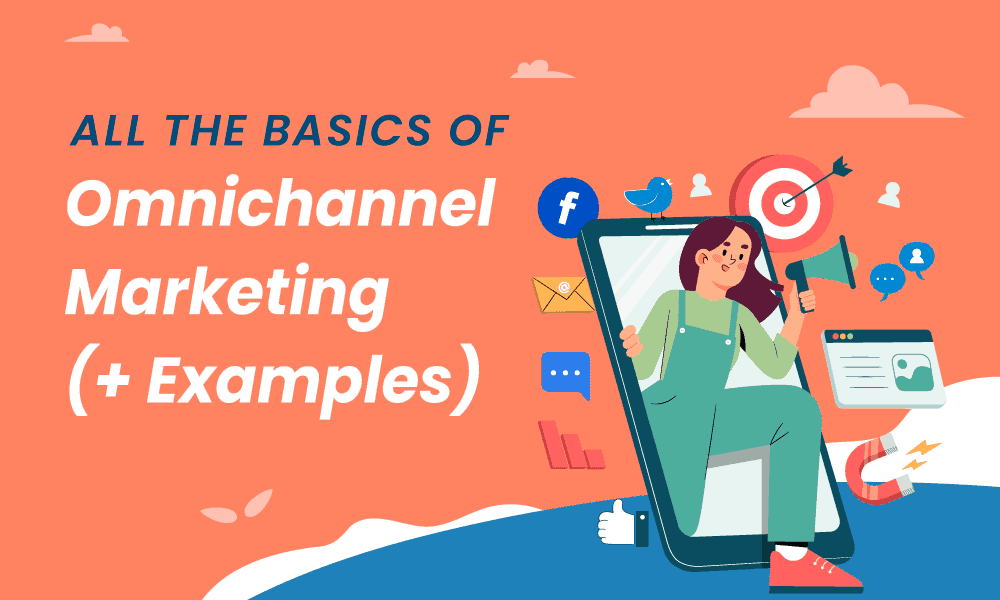

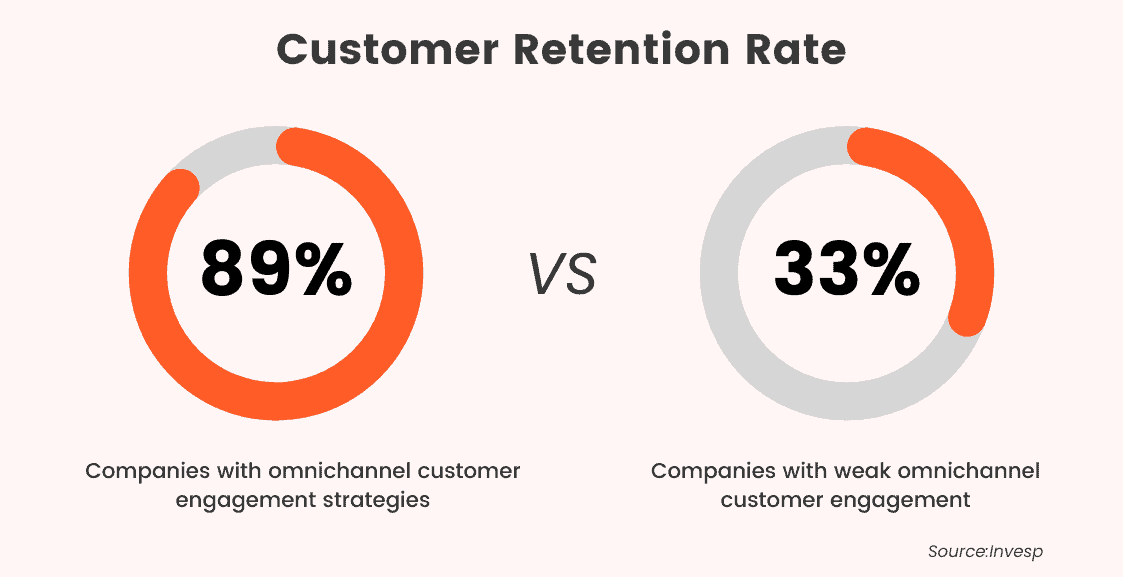
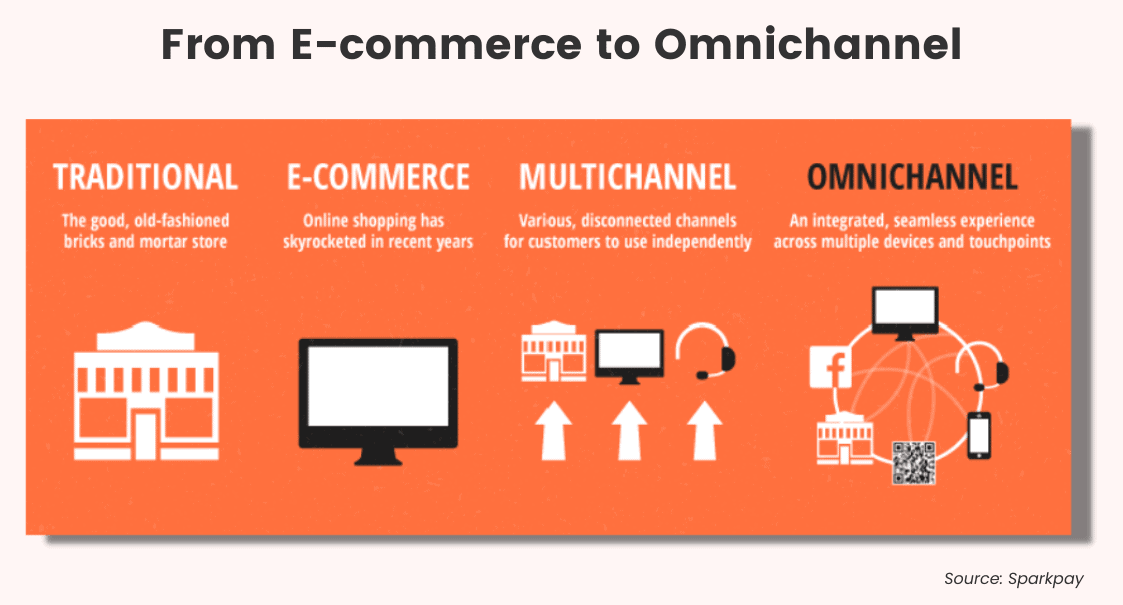

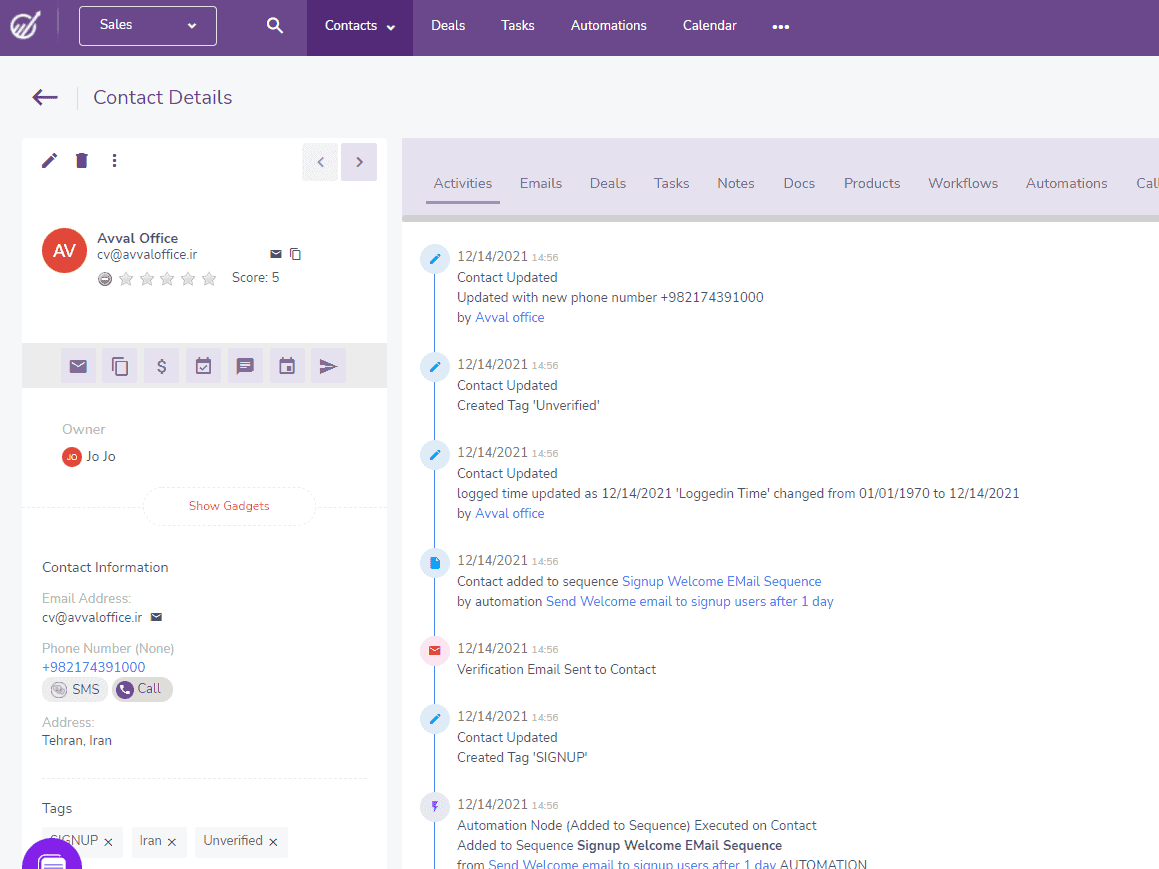

great piece